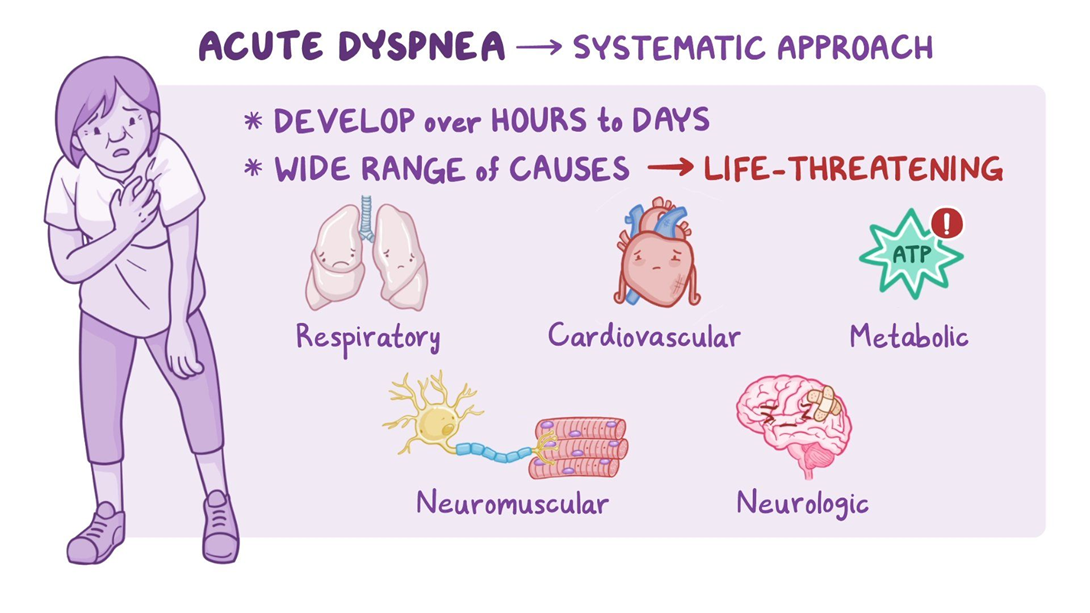A nurse is assisting with the plan of care for a client who has aspirated pneumonia and hypoxia. Which of the following actions should the nurse plan to take?
Apply petroleum jelly to the client's nares.
Initiate fall precautions.
Maintain the client in a supine position.
Implement contact precautions.
The Correct Answer is B
Choice A: This is incorrect because applying petroleum jelly to the client's nares can interfere with oxygen delivery and cause skin breakdown. The nurse should use water-soluble lubricant or saline spray to moisten the nares and prevent dryness from oxygen therapy.
Choice B: This is correct because initiating fall precautions can prevent injury and complications for the client who has aspirated pneumonia and hypoxia. The client may have altered mental status, weakness, or dizziness due to hypoxia, infection, or medications. The nurse should use bed alarms, side rails, and assistive devices as needed.
Choice C: This is incorrect because maintaining the client in a supine position can worsen hypoxia and pneumonia by decreasing lung expansion and increasing secretions. The nurse should elevate the head of the bed at least 30 degrees and encourage frequent position changes to improve ventilation and drainage.
Choice D: This is incorrect because implementing contact precautions is not indicated for the client who has aspirated pneumonia and hypoxia. Aspirated pneumonia is caused by inhalation of foreign material into the lungs, not by transmission of microorganisms from person to person. The nurse should use standard precautions and droplet precautions if the client has a cough or sputum production.
Nursing Test Bank
Naxlex Comprehensive Predictor Exams
Related Questions
Correct Answer is A
Explanation
Choice A reason: Difficulty swallowing is a sign of anaphylaxis, which is a severe allergic reaction that can cause swelling of the throat and tongue, leading to airway obstruction and respiratory distress.
Choice B reason: Petechial rash on the abdomen is not a sign of anaphylaxis, but rather a sign of thrombocytopenia, which is a low platelet count that can cause bleeding under the skin.
Choice C reason: Hypertension is not a sign of anaphylaxis, but rather a sign of high blood pressure, which can be caused by various factors such as stress, pain, or kidney disease.
Choice D reason: Bilateral tinnitus is not a sign of anaphylaxis, but rather a sign of hearing loss or damage, which can be caused by exposure to loud noise, ear infection, or medication side effects.
Correct Answer is B
Explanation
Choice A: This is incorrect. Potassium 4.0 mEq/L is a normal value and does not indicate heart failure.
Choice B: This is correct. Brain natriuretic peptide (BNP) is a hormone that is released by the heart when it is stretched or overloaded. A high level of BNP indicates that the heart is working harder than normal and may have heart failure. A normal BNP level is less than 100 pg/mL, so 275 pg/mL is elevated and suggestive of heart failure.
Choice C: This is incorrect. Sodium 140 mEq/L is a normal value and does not indicate heart failure.
Choice D: This is incorrect. Calcium 9.0 mg/dL is a normal value and does not indicate heart failure.

Whether you are a student looking to ace your exams or a practicing nurse seeking to enhance your expertise , our nursing education contents will empower you with the confidence and competence to make a difference in the lives of patients and become a respected leader in the healthcare field.
Visit Naxlex, invest in your future and unlock endless possibilities with our unparalleled nursing education contents today
Report Wrong Answer on the Current Question
Do you disagree with the answer? If yes, what is your expected answer? Explain.
Kindly be descriptive with the issue you are facing.
